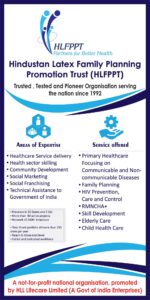
Public health is a strategy for improving and preserving the overall well-being of communities and people. Through research and innovation, public health practice promotes the detection, management, and prevention of various diseases.
Individuals’ lifestyles and health-related behaviors are improved by professionals with public health certification. They specifically focus on the infectious disease transmission paradigm and develop viable methods to reduce their incidence and prevalence across communities.
Research-based practice approaches to aid in reducing the recurrence of health conditions across neighborhoods, states, and countries.
Public health practice is critical to reducing health disparities around the world. Qualified and experienced public health organizations in India help to improve population access to quality health services.
They also collaborate with social service organizations and government agencies to improve the provisions (safe water and food) for underprivileged communities. They also assist people who are chronically ill in lowering their health risks and improving their quality of life.
Public health organizations in India allow experts to organize and support a variety of vaccination programmes for children, adults, and the elderly.
Top Reasons Why Public Health is so Important?
- Public Health professionals, who have either completed a Public Health degree or a Health Studies related course, are constantly fighting diabetes, cancer, heart disease, and dementia to keep the population healthy and well-being.
- One of the most important aspects of public health is its preventative nature. The cure is far more effective and far more expensive than prevention.
- Individuals can spend more of their lives in good health by preventing health problems.
- Public health assists in detecting health issues as early as possible and responding appropriately to prevent disease development.
- It is diverse and considers the health of the entire population rather than focusing on individual health.
- Public health is important because it ensures that everyone is aware of potential health risks through educational programmes, campaigns, and influencing government policies.
- It is critical because you are constantly learning new skills and growing as a person. This is due to the nature of the work, which promotes growth through day-to-day activities as well as participation in major projects and campaigns.
- Public health is important because you are constantly working to close the gap between people and encourage equal opportunities for children, people of all ethnicities, and people of all genders.
- Health is a human right, and as a Public Health professional, you work to ensure that no one is disadvantaged, regardless of socioeconomic status.
- Public health is important because you become the voice for those who do not have one, and simply put, your influence on the improvement of someone’s health can be very rewarding.
The national skill development programme‘s goal is to promote skill development by catalyzing the establishment of large, high-quality, for-profit vocational institutions. Furthermore, the organization provides funding to support the development of scalable and profitable vocational training initiatives.
HLFPPT has launched the Skill Development Programme to address this gap and contribute to the Central Government’s flagship Skill India Mission. Its goals include developing a cadre of skilled human resources through quality training and providing youth with sustainable livelihood options.
Since its inception in 2015, the programme has successfully trained students in 14 states (UP, Kerala, Himachal Pradesh, Odisha, Bihar, Rajasthan, Maharashtra, Andhra Pradesh, Assam, Telangana, Madhya Pradesh, Jharkhand, Mizoram, and Chhattisgarh) via skill centers across India.
To begin, the Skill Development Team engages in student mobilization activities in schools and colleges via presentations and posters, as well as in villages and local communities via mobilization vans, pamphlet distribution, community meetings, and so on.

